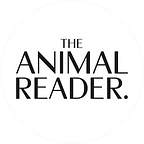Animal activists outraged by plans for huge new egg farm in Singapore
Japan’s top egg producer, recently targeted by an animal rights organization for its facilities’ ‘hellish’ conditions, has signed a contract with the Singaporean government to build a production facility that will produce over 300 million eggs a year by 2026.
Work on the new ISE Foods Holdings (IFH) egg production facility is due to begin in 2022, according to a Singapore Food Agency press release. By 2026 the facility aims to produce 360 million eggs and five million chicks a year.
IFH would invest more than S$100 million in the Singapore facility, which would “adopt environmentally sustainable practices and employ state-of-the-art technologies in areas ranging from remote monitoring of animal health, advanced climatic control to odor/waste management”, the press release said.
Although the food agency press release mentions animal health several times, there is no reference to animal welfare.
Videos made by People for the Ethical Treatment of Animals (PETA) of an IFH production facility in Japan appeared to show chickens crammed into wire cages, corpses of dead hens, injured hens, trapped hens and hens with large bald patches.
“On the farm, injured birds suffering from painful conditions caused by excessive egg-laying were crammed into spaces so small they couldn’t even stretch their wings,” Nirali Shah from PETA Asia said. “Dead chickens were left to rot alongside survivors and other birds covered with red, inflamed sores.”
ISE was caught on camera clearly abusing chickens, Shah told The Animal Reader in a mail. “PETA will be writing to the Singapore Food Agency to urge them to stop ISE from setting up shop in the country and exploiting the lives of sensitive birds for a cheap profit,” she added.
Shah also said that the popularity of vegan foods has grown in recent years. “Innovative companies in Singapore like OsomeFoods have developed a vegan hard-boiled egg, which no animal has to die for,” Shah said.
“If the Singapore Food Agency cares about the suffering of animals, the health of the public, and the planet, it will stop the ISE farm from opening and shift to invest in animal-free meals instead,” she added.
Use of cages
Commenting on the Singaporean egg facility announcement, Jeff Zhou, China representative for Compassion in World Farming (CIWF), said there will be animal welfare problems if a caged system is used.
“In these [caged] systems, hens … have little space and suffer from frustration, with no facilities to express their natural behaviours like perching, and [they] are often beak-trimmed to avoid feather-pecking,” he said.
He added that the development, coming at a time when hundreds of global food brands were making cage-free commitments, mostly by 2025, risked not being “fit for the future.”
Zhou recommended that the facility “goes to cage-free system from the start.”
Zhou also suggested that although the project aimed to improve local food security, providing more support for alternative proteins and plant-based foods might be the better option.
“I understand Singapore is a developed country. The government should realize nutrition supply can be met not only by the supply of livestock products, but also by promotion of a balanced diet,” he said.
Last year Zhou said CIWF was “very encouraged” to see the Singapore Food Agency approving Eat Just ‘s cell-cultured chicken.
The move, he said, made “the country the first in the world to give its go-ahead to selling meat created in a lab. I do hope Singapore can play a leading role in the promotion of animal welfare and sustainable use of resources in Asia.”
In an email to The Animal Reader, IFH said it was “planning to conduct various studies on animal welfare from both physical and mental perspectives” for the Singapore facility, adding that there are plans for an aviary chicken house. They did not provide further details on animal welfare.
The Animal Reader is an animal news organization and posts daily news articles about animals. If you can, please consider supporting our work.
Originally published at https://www.theanimalreader.com on September 13, 2021.
